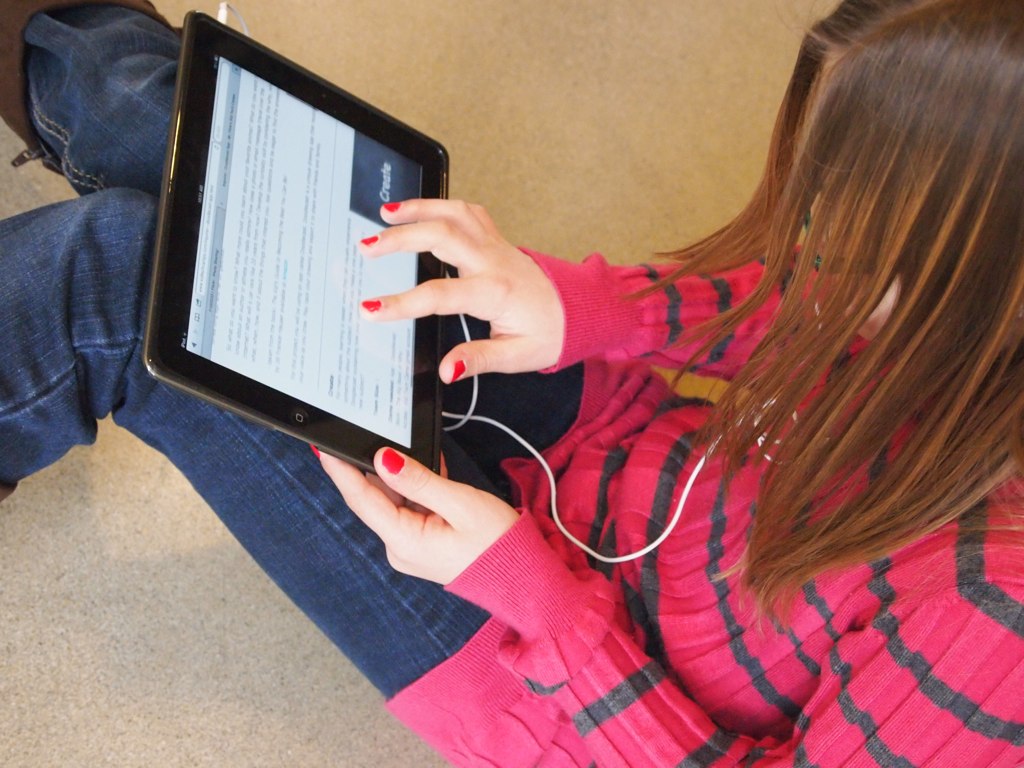
Better defining digital literacy
Photo Credit Flickr user: Brad Flickinger
On Saturday, June 23, Knight Foundation’s Program Director in San Jose/Silicon Valley, Judith Kleinberg, is participating in a discussion around what digital literacy means at the American Library Association’s Annual Conference in Anaheim, C.A. The following, written by Renee Hobbs, a professor in the Harrington School of Comunicaton and Media at the University of Rhode Island gives a preview. It is crossposted from the Media Education Lab’s blog.
What is digital literacy? The term has been rising in visibility since 2009 but it has been used quite differently by a variety of stakeholders including policy makers, educators, and business and technology professionals. At the American Library Association’s annual conference, I’ll be moderating a discussion about four distinct but interrelated definitions and uses of this important term. Sharing ideas with me will be Judith Kleinberg of Knight Foundation, Roseanne Cordell, a librarian at Indiana University South Bend, and Laurel Felt, a doctoral candidate at the University of Southern California’s Annenberg School of Communication and Journalism.
Depending on what group of people you talk to, the term ‘digital literacy’ might suggest one or more of these meanings. Which of these definitions are most (and least) useful to your work? For school, academic or public librarians, which of these terms is most relevant? For those in K-12 education, which do you focus on? And for technology educators, where do you focus? Funders and policymakers, which ones are most likely to resonate with decision makers in local, state and national government?
Computer Skills and Access Issues. Having broadband access and knowing how to use the Internet enable full participation in society. For some, basic keyboard and mouse skills are essential skills while others may benefit from a greater understanding of file management and browsers. For example, websites like DigitalLiteracy.gov emphasize the value of using the Internet to find a job, create a resume and for career exploration.
Issues of Authorship. People are creating and sharing more than ever. The concept of digital literacy reflects the growing importance of user-generated content and the changing role of authorship in a digital age. Digital literacy programs like YouMedia empower people with easy access to powerful tools of expression and communication using social media, images, language, music, sound, and interactivity.
Issues of Representation. How do you decide what to believe? Librarians who value information literacy note the important skill of being able to evaluate the credibility of information sources. Credibility assessment websites like Politifact and FactCheck.org offer an examination of the relationship between the symbol and the thing symbolized. Determining what’s more accurate or less accurate (or what a “quality” source is) is a judgment about issues of representation.
Online social responsibility. How do people learn to integrate ethics in both their online and offline lives? Many people have real concerns about how people behave in online social relationships. The immediacy and instantaneousness of digital media may promote cyberbullying, sexting, disrespect for copyright, privacy violations and inappropriate information sharing. Groups like Common Sense Media provide guidance for helping young people develop the knowledge they need to make appropriate choices about how to manage their digital life.
If you’re coming to the American Library Association’s Annual Conference in Anaheim, C.A., please join us to discuss the concept of digital literacy in what is sure to be a dynamic, lively and provocative discussion. If you can’t attend the event, please follow and contribute to the conversation through Twitter with our hashtag, #digilit12.
Recent Content
-
Communitiesarticle ·
-
Communitiesarticle ·
-
Communitiesarticle ·


